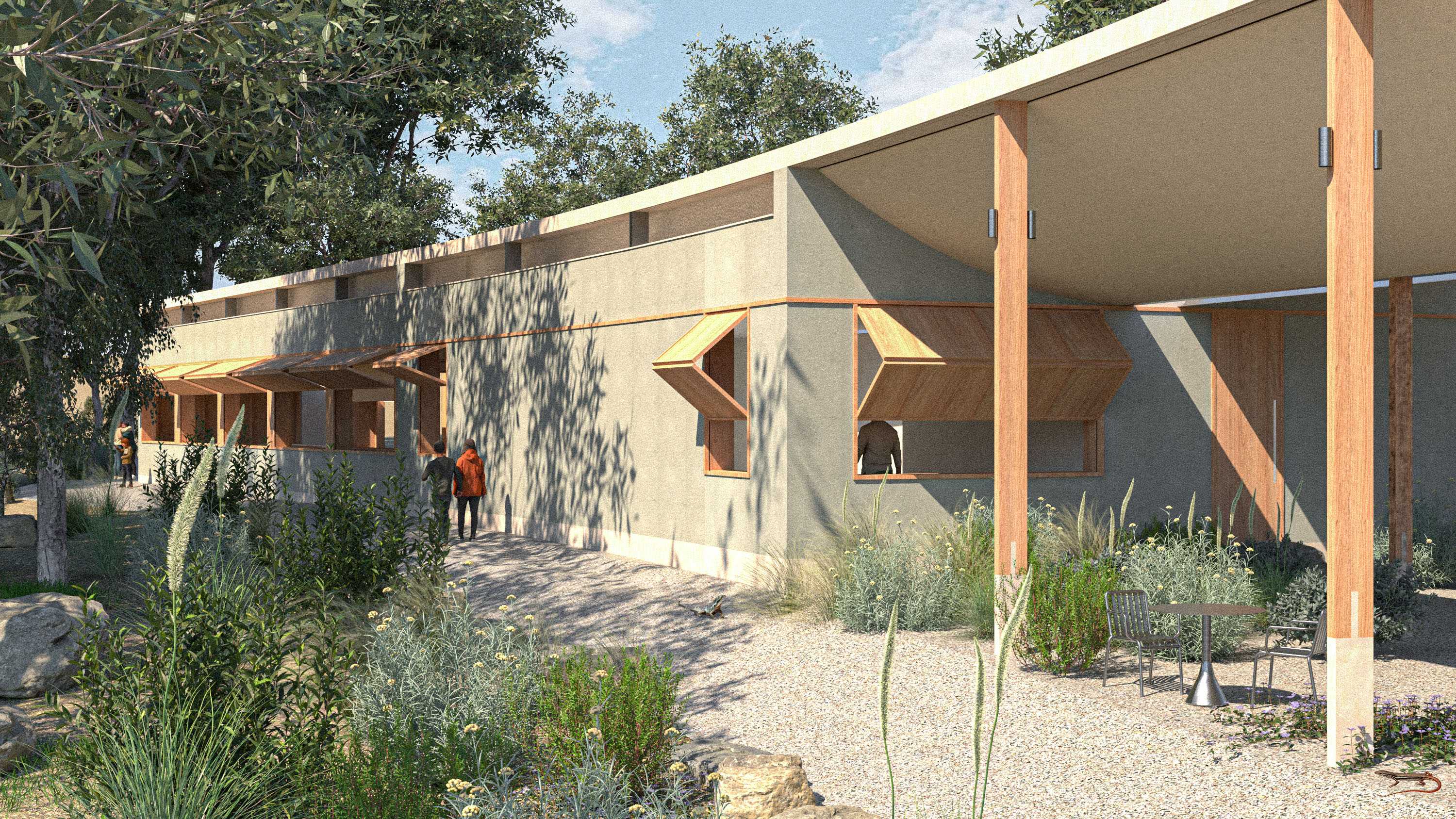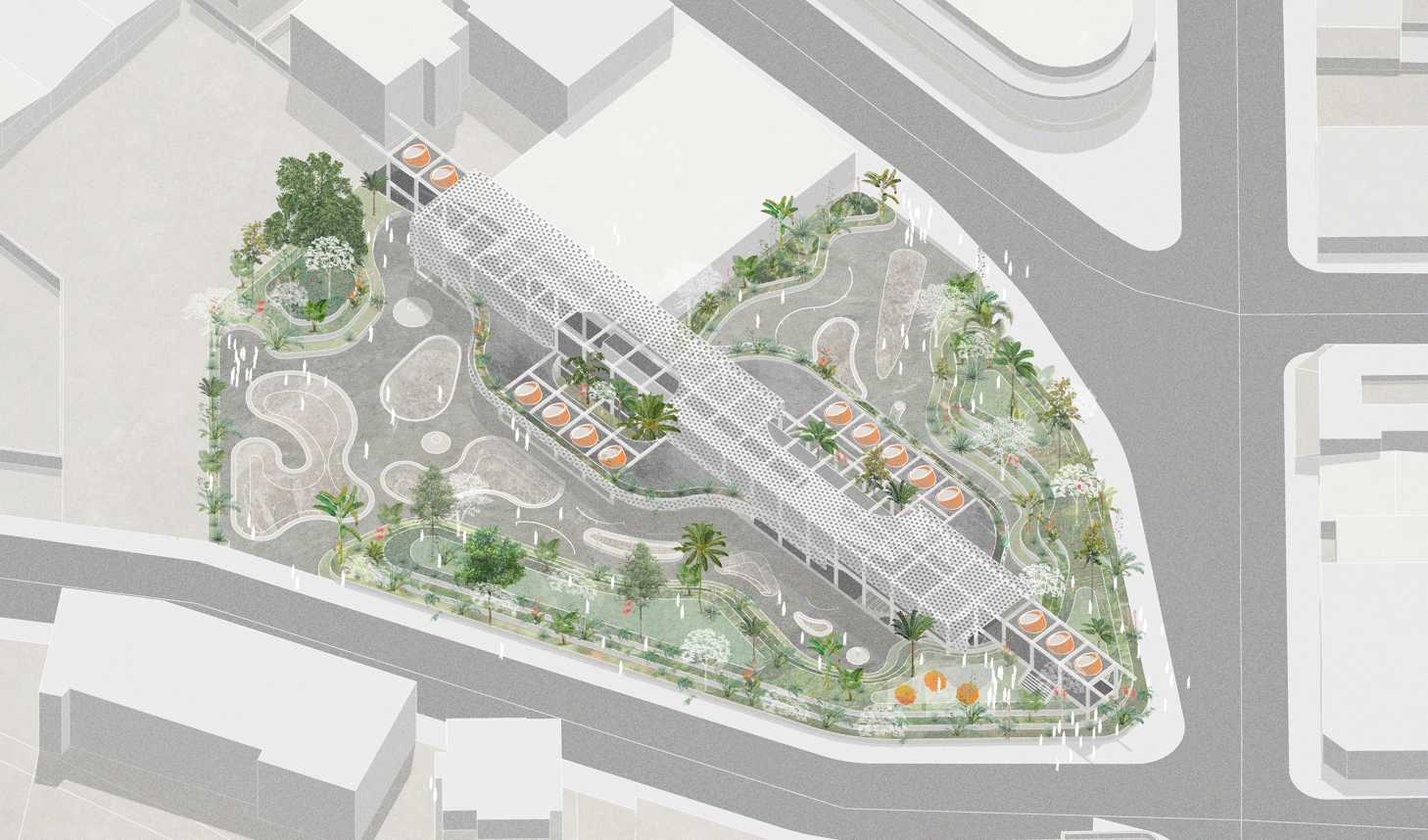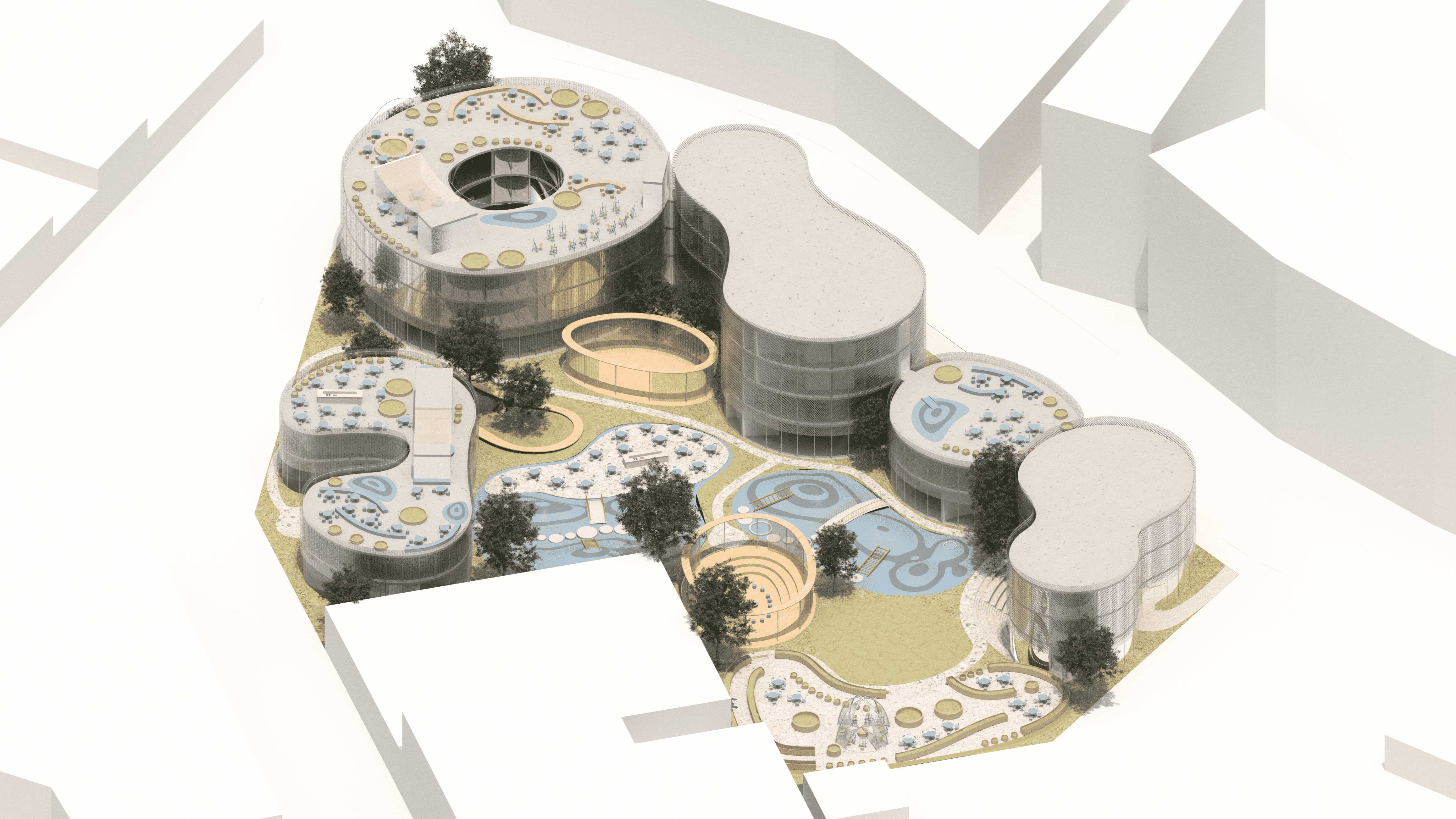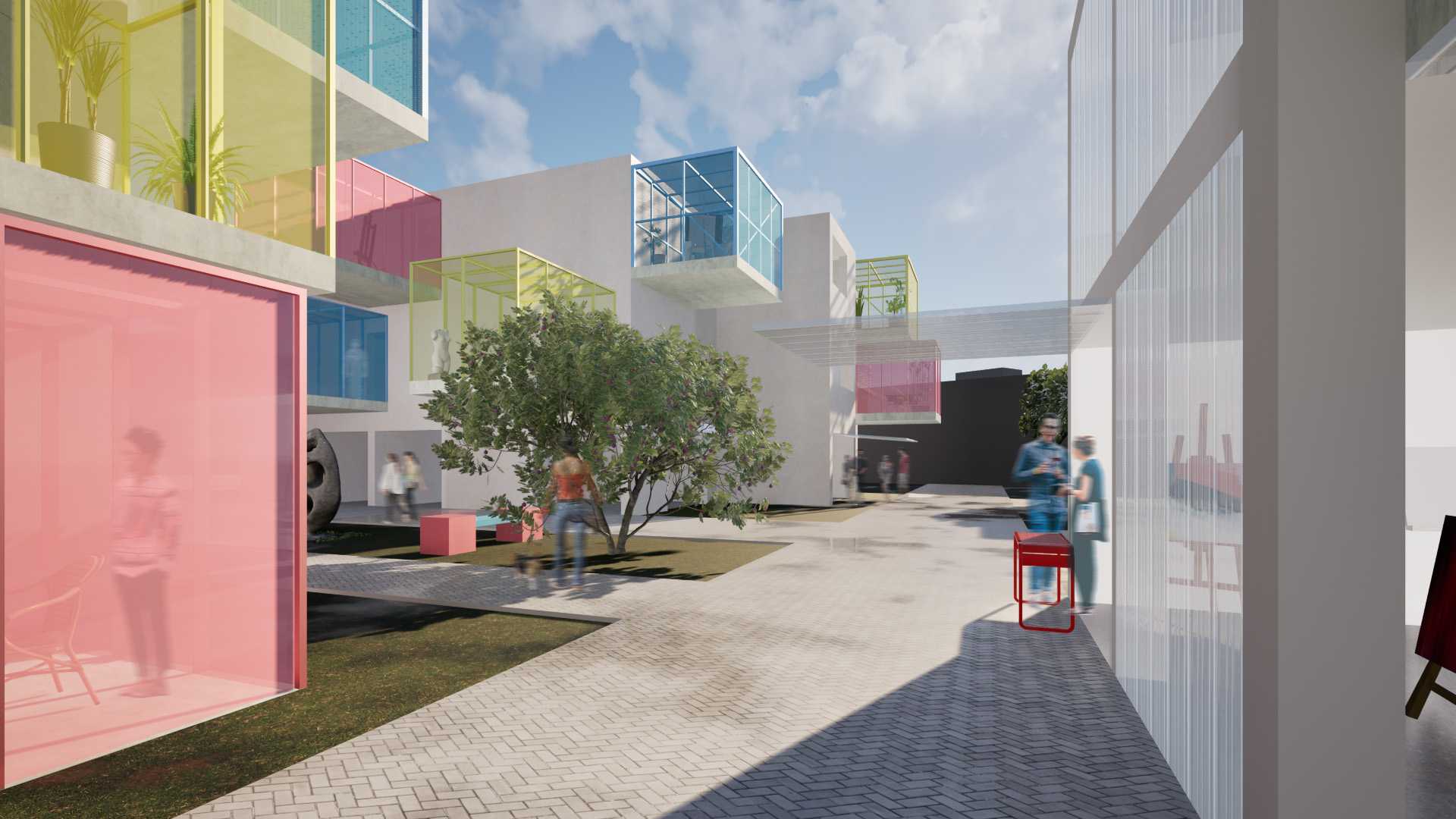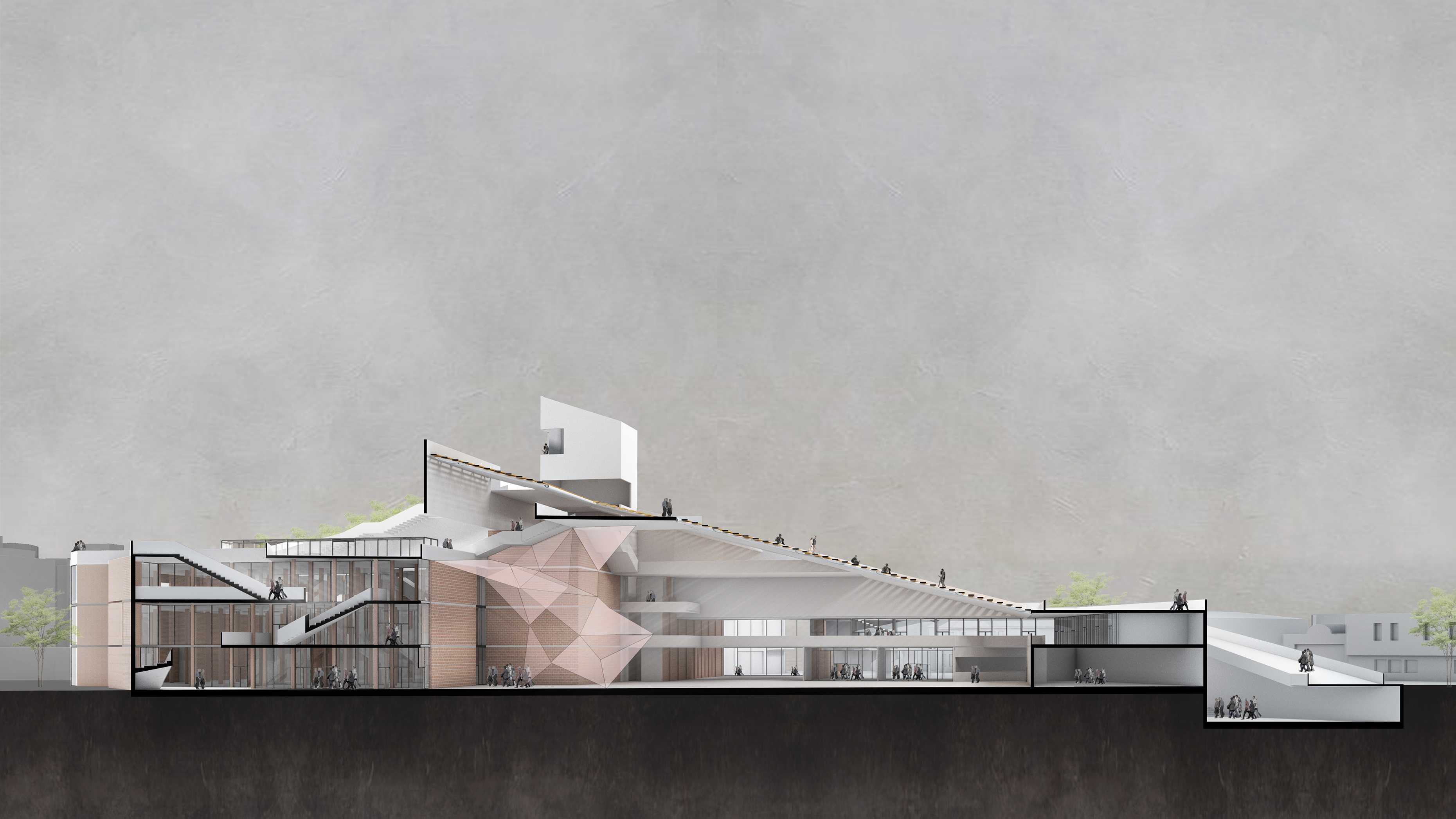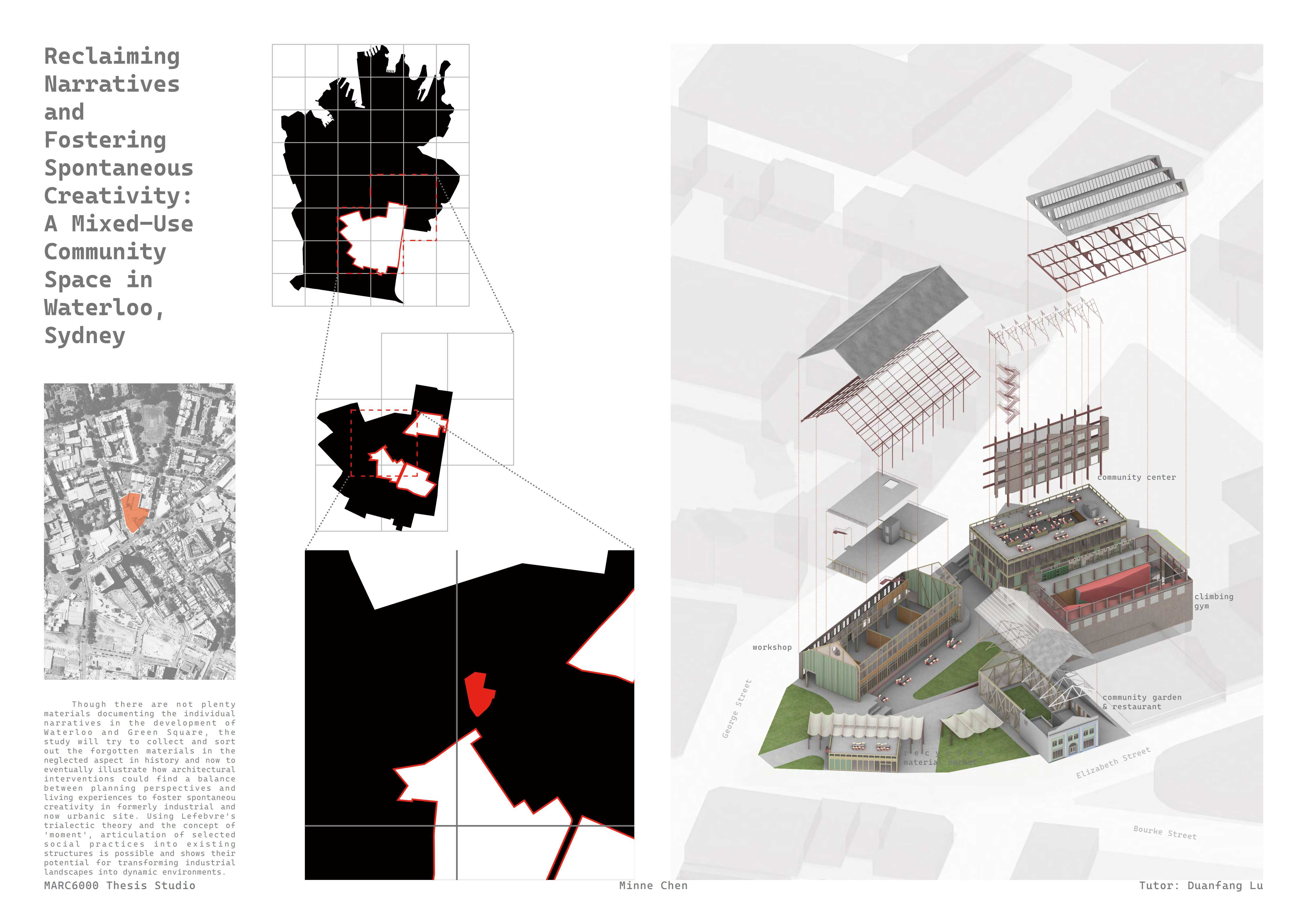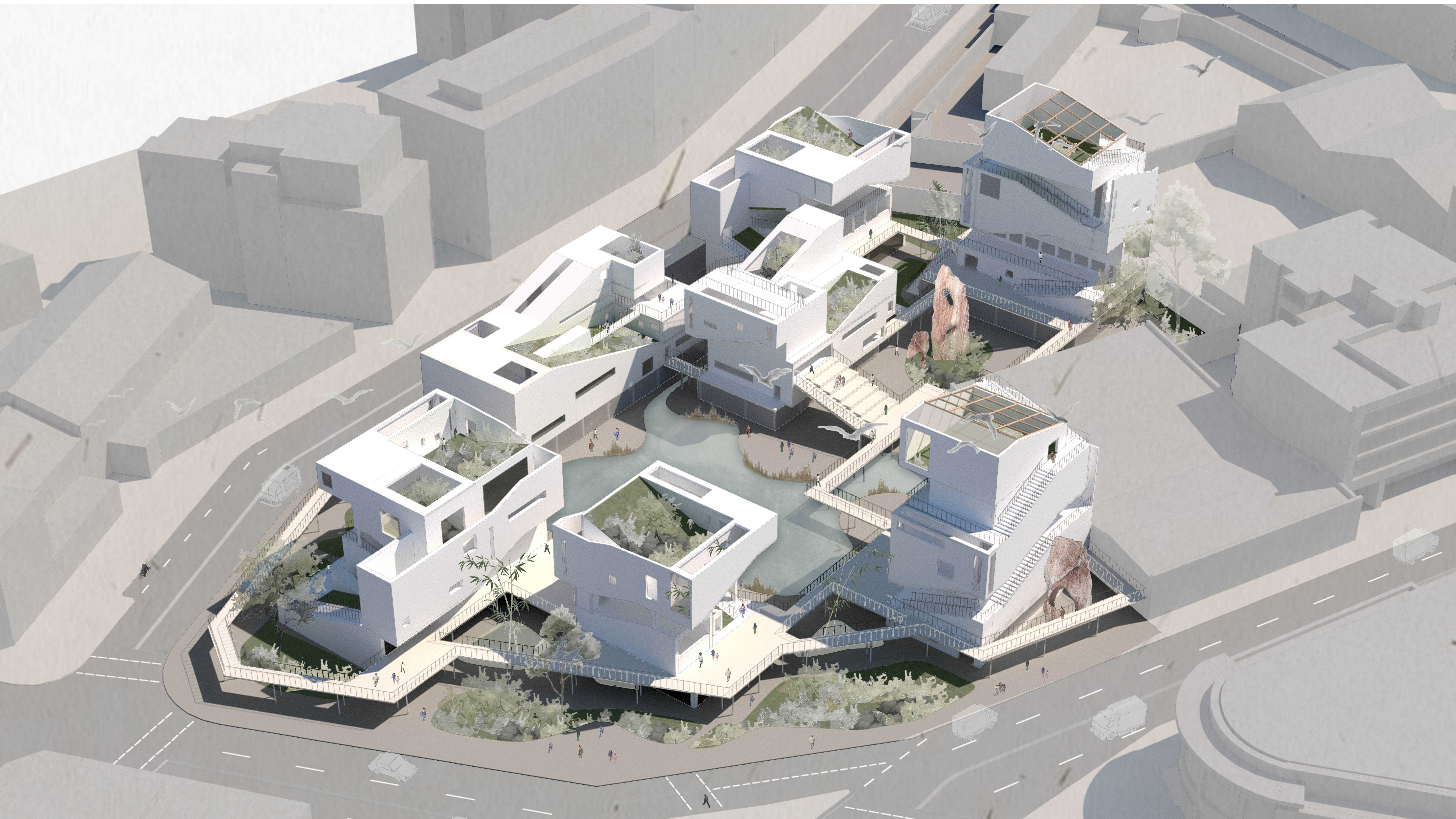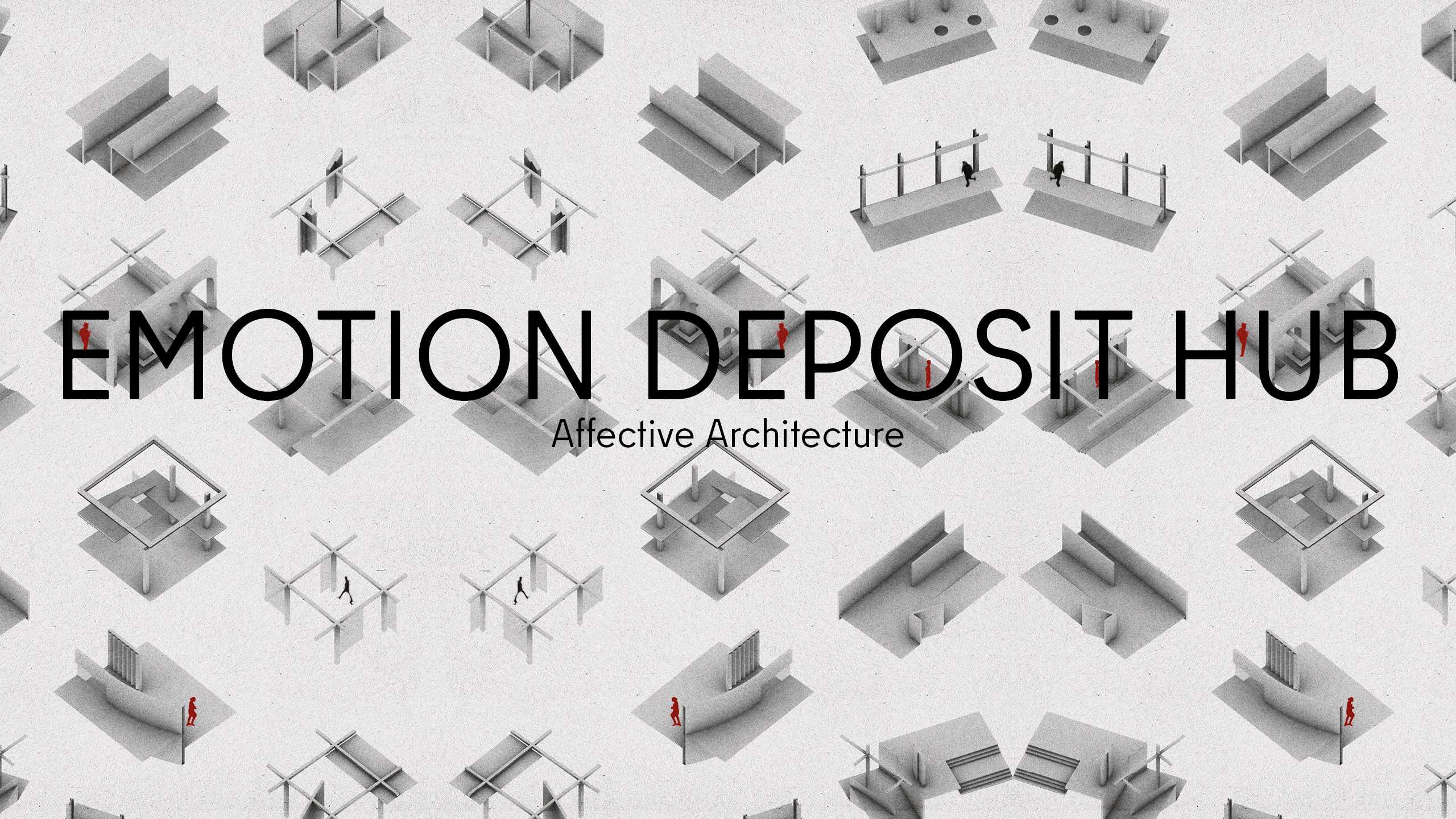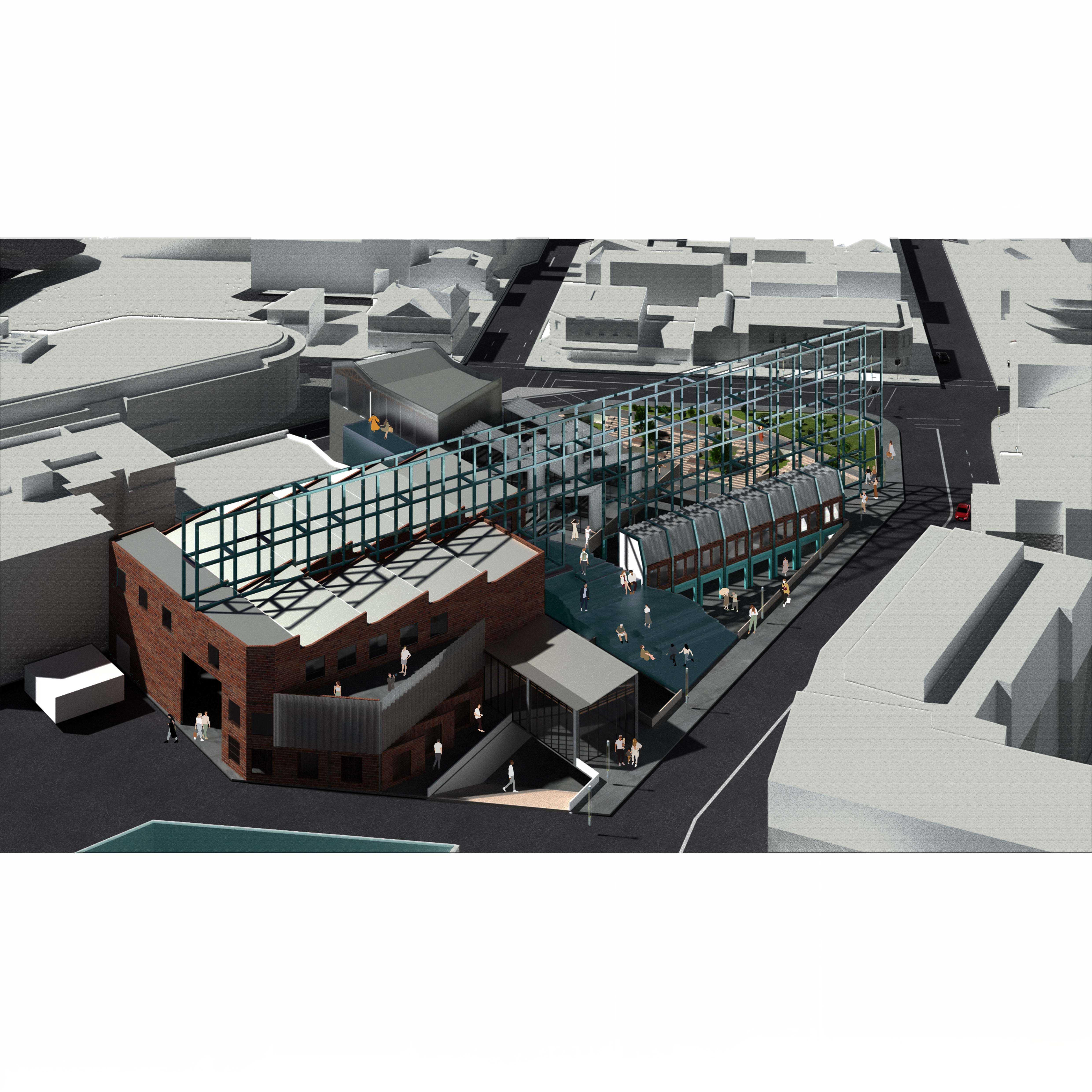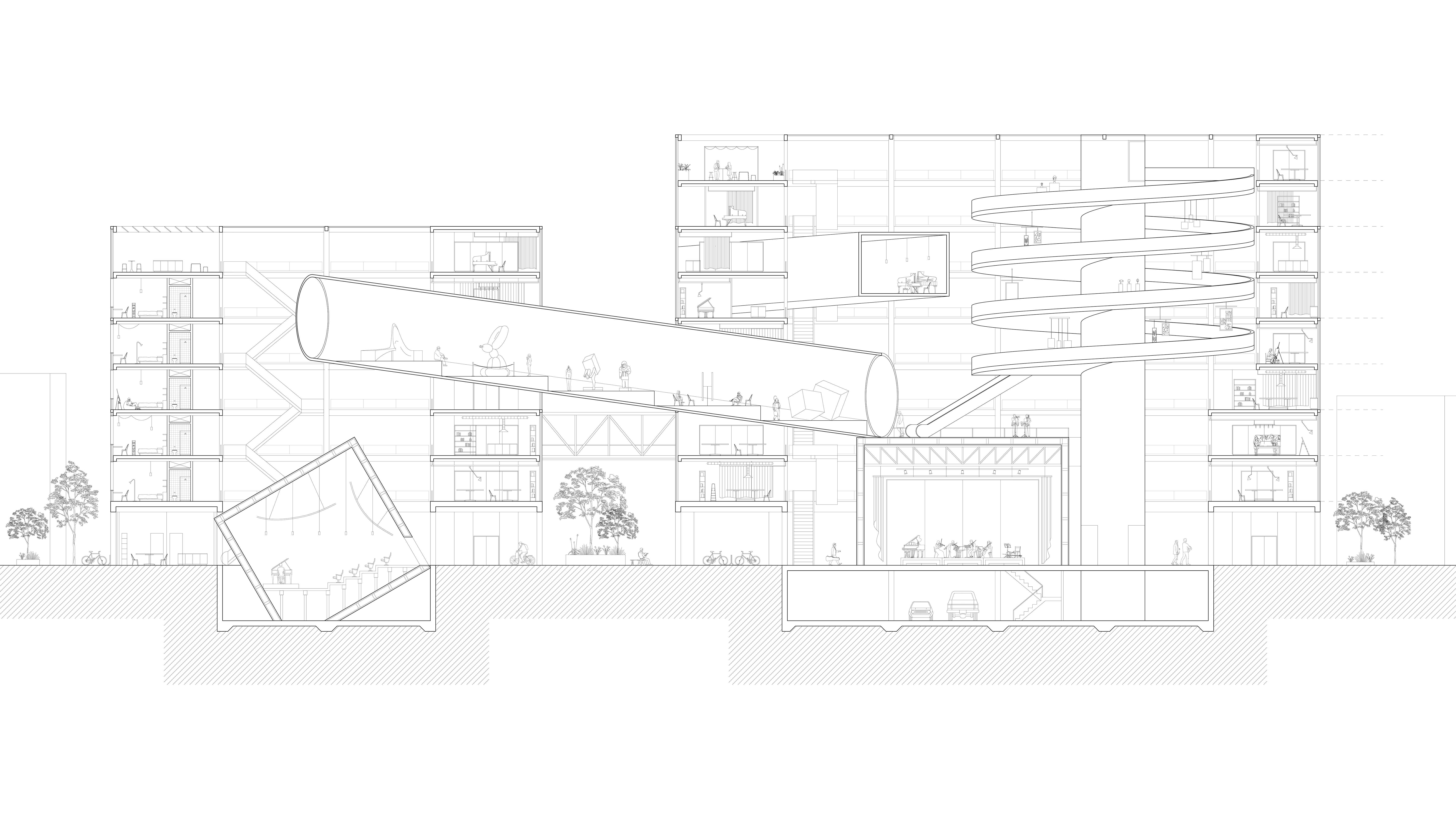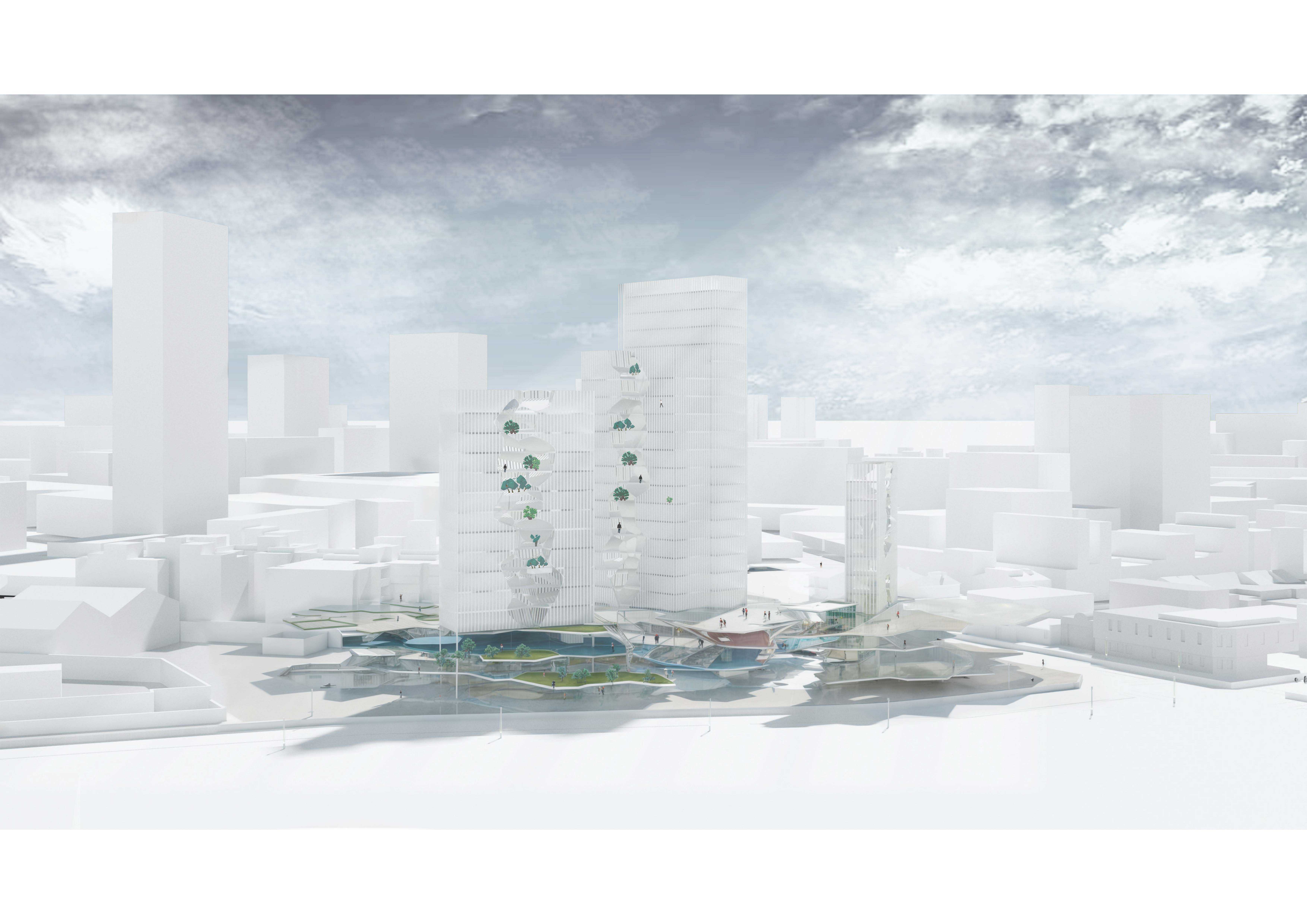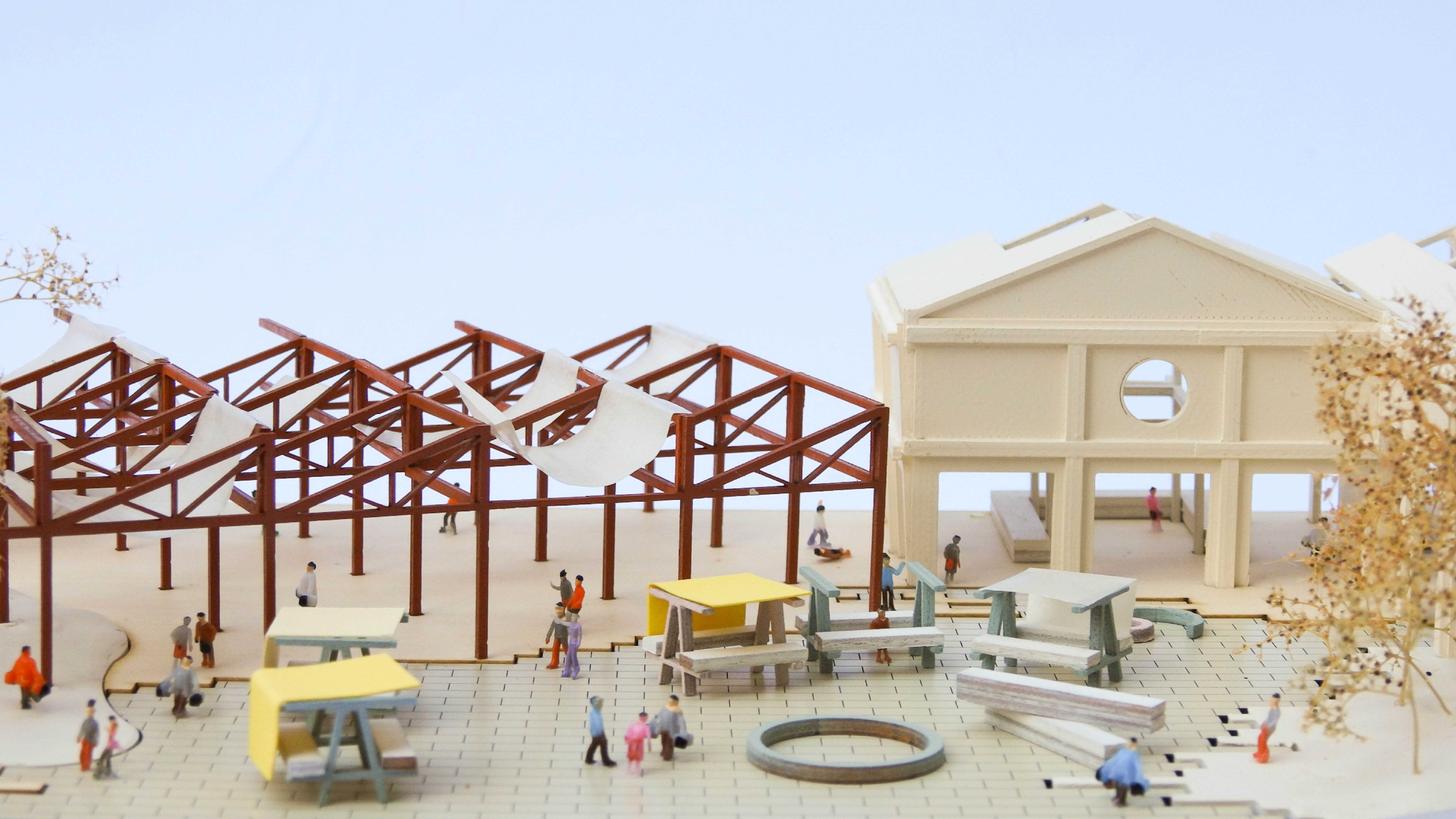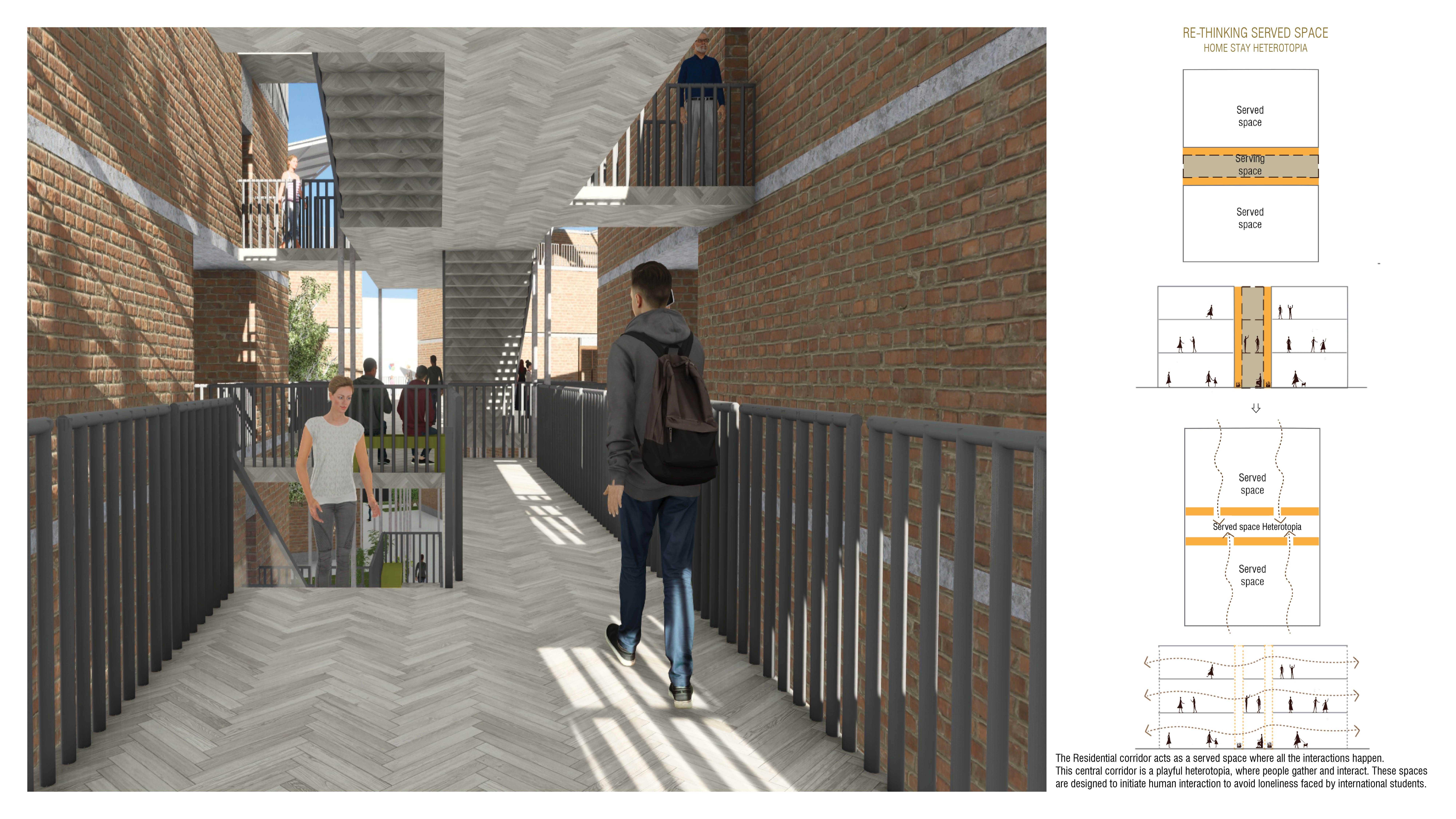Addressing contemporary issues such as social fragmentation, housing affordability and ecological crises, this studio explores the possibilities of developing sustainable infrastructures of play. The task is to design a 21st-century mixed-used urban eco-settlement as a playful heterotopia – that is, a physical or discursive space where norms of behaviours and expectations are suspended. Drawing on concepts such as ‘apparent purposelessness’ and ‘homo ludens’, the studio speculates on what it means for humans to choose an activity just for fun rather than being pursued for the sake of satisfying material needs. Works such as ‘New Babylon’ by Dutch experimental architect Constant Nieuwenhuys provide a model for disentangling a world trapped in commodity culture and alienation, by creating new spaces for a nomadic life of creative play. In this way, the studio diverges from a modernist mentality of efficiency and productivity that didn’t take play as seriously as living, working and circulation. For Nieuwenhuys and the Situationists (as opposed to the 1933 Athens Charter of the International Congress of Modern Architecture, or CIAM), the spirit of creativity, mobility and fluidity inherent in play offers infinite revolutionary possibilities to move beyond the spectacle of capitalist society.
A corner location in inner-city Waterloo, Sydney provides the site for new conceptual approaches, architectural tactics and spatial strategies to achieve programmatic, spatial and constructive playfulness. Students are asked to design an urban eco-settlement as playful heterotopia(s) to enhance connectedness, sustainable living and empowerment through the conceptual, spatial and practical potentials offered by new and emerging technologies.
